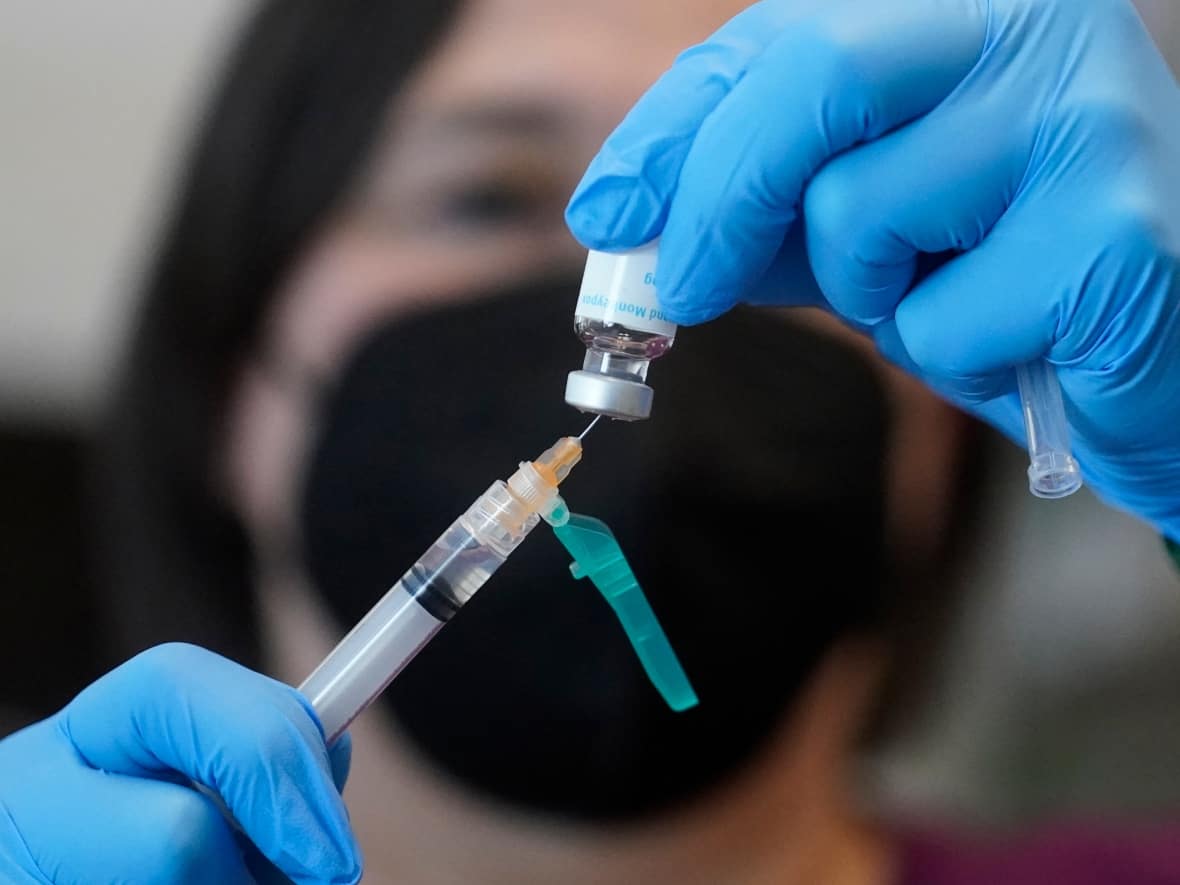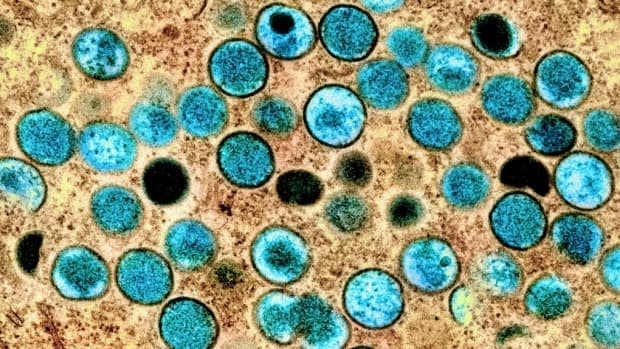N.B. looks to broaden access to monkeypox vaccine, focus on pre-exposure prevention

New Brunswick is looking into broadening access to the monkeypox vaccine for prevention prior to exposure, says the acting deputy chief medical officer of health.
The federal government has confirmed the province will receive additional vaccine doses, said Dr. Yves Léger.
"So we are now able to look at expanding access beyond … close contacts," he said.
New Brunswick previously received only 140 doses of the Imvamune vaccine, which were being reserved for close contacts of any confirmed cases of the virus.
Léger did not say how many more doses the province has secured, but previously said Public Health was seeking a "significant increase" to make the vaccine available to at-risk groups to try to prevent more cases.
The Department of Health has not yet determined who will be offered the vaccine pre-exposure, he said.
"We're sort of working through those pieces right now, and hopefully we'll be able to update the public on … who would be eligible in the near future."

Monkeypox virus can spread when a person comes into contact with the virus from an infected person, infected animal, or materials that have touched body fluids or sores, such as clothing or linens. The virus may also be transmitted during pregnancy to the fetus through the placenta.
According to the Public Health Agency of Canada, monkeypox is usually a mild illness and most people recover on their own after a few weeks. But some people can become very sick and even die.
The vaccine is ideally given within four days of exposure to the virus to prevent the disease. It can also be given within a two-week window to reduce symptoms.
Some jurisdictions have focused prevention efforts on gay, bisexual and other men who have sex with men since the majority of confirmed cases in Canada with available information on exposure history have been men who reported intimate sexual contact with other men.
But anyone, regardless of gender or sexual orientation, can get infected and spread the virus if they come into close contact with an infected person or contaminated objects.
Downward trend in Canada 'encouraging'
There have been 1,228 confirmed monkeypox cases across Canada, and more than 46,000 cases have been reported in 98 countries since late April.
WHO has declared the outbreak a global health emergency, but on Wednesday the director-general said Canada's "sustained, downward trend" of monkeypox cases is "encouraging."
The rate of spread has slowed in recent weeks, with just 169 cases reported across the country since Aug. 12. This demonstrates "the effectiveness of public health interventions" as well as the tracking of infections and prevention of transmission, Dr. Tedros Adhanom Ghebreyesus said at a news conference in Geneva.

As of Tuesday, New Brunswick still has only one confirmed case, announced Aug. 12, Léger said.
No information about the individual, including their gender, age range or health region, has been released — only that they had not travelled out of province, which indicates they got the virus either from a New Brunswick resident or a traveller. The source has not yet been confirmed.
A few of the person's close contacts have been offered the vaccine.
The province also had a suspected travel-related case of monkeypox in June, but the person wasn't assessed until after their symptoms faded and tested negative.
Symptoms of monkeypox can include: fever, intense headache, muscle aches, back pain, low energy, swollen lymph nodes, and a skin rash or lesions.
Symptoms usually appear within seven to 14 days of infection but onset can range from five to 21 days.


